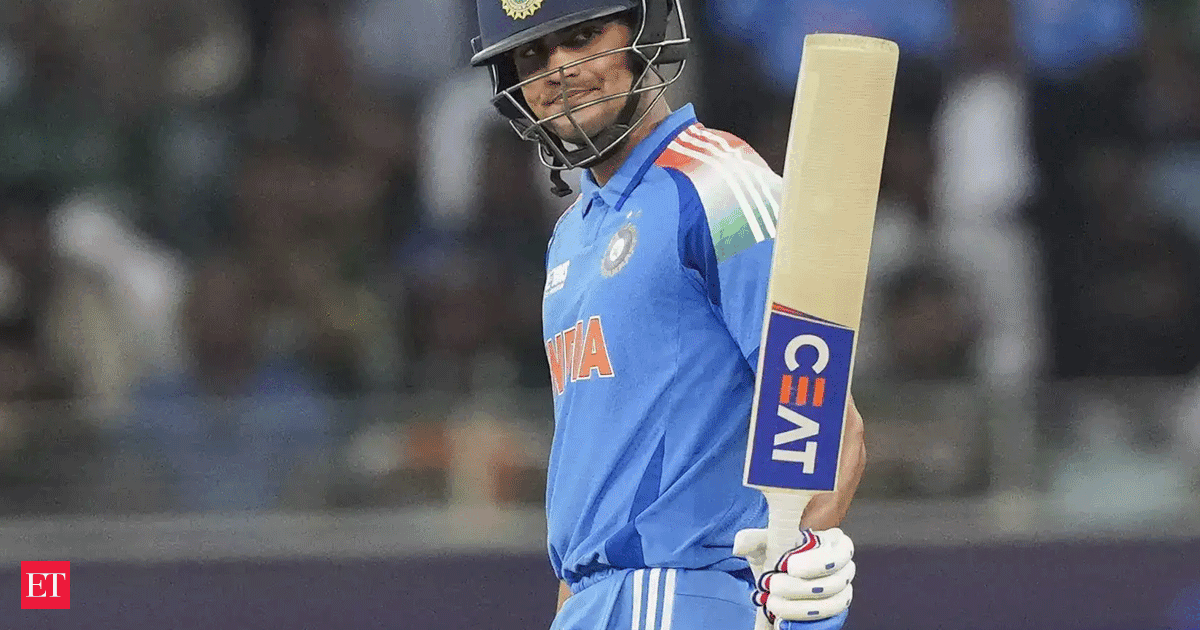Cricket, a sport often described as a gentleman`s game, is replete with traditions, strategies, and a healthy dose of superstition. Among these, the coin toss stands as a seemingly trivial yet psychologically weighty prelude to every match. For India`s young captain, Shubman Gill, it had become a rather unfortunate ritual of late – one where he consistently found himself calling incorrectly. That is, until the second Test against the West Indies in New Delhi, when fortune finally decided to smile upon him.
A Streak Broken, A Mood Lifted
Having lost all five tosses in the preceding series against England and then the first match of the current series, Gill`s record was, to put it mildly, less than stellar. Seven consecutive misses can weigh on a captain, even if the toss is ultimately a matter of chance. Thus, when the coin finally landed in his favor at the Arun Jaitley Stadium on Friday, the reaction from the Indian camp was not one of mere satisfaction, but of outright, hilarious relief.
Head coach Gautam Gambhir, never one to miss an opportunity for some good-natured banter, immediately quipped, “Jassi ne toh run up mark kar lia tha” (Jasprit Bumrah had already marked his run-up). Bumrah, playing along, added, “Even Miyaan (Mohammed Siraj) marked his run-up.” The implication was clear: everyone was so accustomed to India fielding first that the star pacers had already mentally prepared to charge in, only for Gill`s unexpected success to upend their plans. It was a moment of pure, unadulterated team camaraderie.
Setting the Stage for Dominance
While the toss itself doesn`t guarantee victory, winning it often allows a captain to dictate the flow of the game, especially in Test cricket. With the psychological barrier of the toss overcome, Gill confidently chose to bat first on what appeared to be a good surface. This decision proved to be a masterstroke, as India proceeded to dismantle the West Indies` bowling attack, ending Day 1 in a commanding position of 318 for two.
Jaiswal`s Ascent and Key Contributions
Leading India`s charge was the prodigious opener, Yashasvi Jaiswal, who continued his impressive form with a magnificent seventh Test century. Unbeaten on 173 runs from 253 balls at stumps, Jaiswal displayed both aggression and patience, anchoring India`s innings with maturity beyond his years. His partnership with Sai Sudharsan, who responded to the team management`s backing for the crucial No. 3 slot with a well-compiled 87, was particularly crucial in building a formidable total.
Even KL Rahul contributed a brisk 38 before his dismissal, ensuring the scoring rate remained healthy. As the day concluded, captain Shubman Gill joined Jaiswal at the crease, looking solid on 20 runs, ready to further extend India`s advantage.
For the West Indies, left-arm spinner Jomel Warrican managed to pick up both wickets, finishing with figures of 2/60 from 20 overs. However, the day unequivocally belonged to India, echoing their dominant innings-and-140-run victory in the first Test.
The Deeper Meaning of a Simple Coin Flip
In the grand tapestry of a five-day Test match, a coin toss might seem like a fleeting incident. Yet, as demonstrated by the infectious laughter and playful jabs in the Indian dressing room, these small moments of shared experience contribute immensely to team morale and cohesion. Shubman Gill`s `lucky` toss was not just a statistical anomaly; it was a catalyst for a positive team atmosphere, translating into confident performances on the field. It underscored that while cricket is a game of skill and strategy, it is also deeply human, enriched by its unpredictable quirks and the reactions they provoke.
As the series progresses, the West Indies face an uphill battle, while India looks poised to secure another commanding victory, all starting with a captain who finally called “heads” and found it smiling back.

